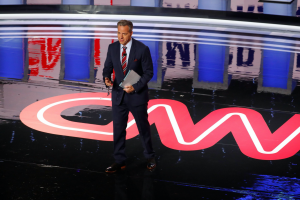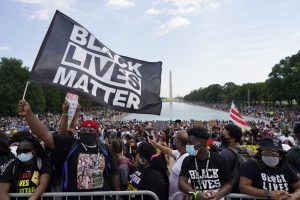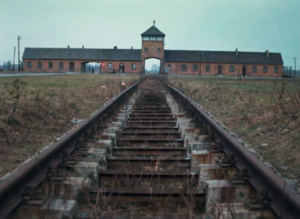François Bozizé is wanted by special criminal court over alleged crimes including murder and torture
Agence France-Presse in Bangui
Tue 30 Apr 2024 17.46 EDT
A UN-backed court has issued an arrest warrant for the Central African Republic’s former president François Bozizé over possible crimes against humanity committed by the nation’s military between 2009 and 2013.
The alleged crimes include murder, enforced disappearance, torture, rape and other inhumane acts, according to the special criminal court (CPS), a hybrid jurisdiction located in the capital Bangui with Central African and foreign magistrates.
Bozizé, 77, seized power in Central Africa in 2003 in a coup before being overthrown 10 years later. He now heads the country’s main rebellion and has been in exile in Guinea-Bissau since March 2023.
The international warrant was issued on 27 February but only announced on Tuesday, according to the CPS, which was set up in 2015 with UN sponsorship. The CPS is calling for Guinea-Bissau’s cooperation to “arrest” and “hand over the suspect”.
The court is in charge of investigating war crimes committed since 2003 in the country, which has endured civil wars and authoritarian regimes since independence from France in 1960.
The court’s magistrates are probing possible “crimes against humanity” committed by Bozizé’s presidential guard between February 2009 and March 2013 at a civilian prison and at a military training facility in the central town of Bossembélé.
The judges concluded there was “serious and consistent evidence against [Bozizé], likely to incur his criminal liability, in his capacity as hierarchical superior and military leader”.
Amnesty International said in a statement that the warrant “constitutes an encouraging step in the quest for justice for the victims of numerous crimes committed in the Central African Republic.” It called on Guinea-Bissau to turn Bozizé over “without delay” to the Central African authorities.
A civil war has plagued the former French colony since a Muslim-dominated armed coalition, Seleka, ousted Bozizé in 2013.
Bozizé set up militias dominated by Christians and animists, known as anti-Balakas, to regain power.
Thousands of civilians were killed and both sides have been accused of war crimes and crimes against humanity by the United Nations.
The conflict lost intensity after 2018, but the country still suffers bouts of violence and remains deeply poor.
Bozizé leads a new alliance of rebel groups called the Coalition of Patriots for Change (CPC), formed in December 2020 in a bid to overthrow his successor, Faustin-Archange Touadéra.
But Touadéra brought in fighters from Russia’s Wagner mercenary group and Russian operatives to push them away from Bangui.
Bozizé was sentenced in absentia in September to forced labour for life for conspiracy, rebellion and murder.
A message from Betsy Reed, editor of the Guardian US
I hope you appreciated this article. Before you move on, I wanted to ask if you would consider supporting the Guardian’s journalism during one of the most consequential news cycles of our lifetimes.
From Elon Musk to the Murdochs, a small number of billionaire owners have a powerful hold on so much of the information that reaches the public about what’s happening in the world. The Guardian is different. We have no billionaire owner or shareholders to consider. Our journalism is produced to serve the public interest – not profit motives.
And we avoid the trap that befalls much US media: the tendency, born of a desire to please all sides, to engage in false equivalence in the name of neutrality. We always strive to be fair. But sometimes that means calling out the lies of powerful people and institutions – and making clear how misinformation and demagoguery can damage democracy.
From threats to election integrity, to the spiralling climate crisis, to complex foreign conflicts, our journalists contextualise, investigate and illuminate the critical stories of our time. As a global news organisation with a robust US reporting staff, we’re able to provide a fresh, outsider perspective – one so often missing in the American media bubble.
Around the world, readers can access the Guardian’s paywall-free journalism because of our unique reader-supported model. That’s because of people like you. Our readers keep us independent, beholden to no outside influence and accessible to everyone – whether they can afford to pay for news, or not.If you can, please consider supporting us just once from $1, or better yet, support us every month with a little more. Thank you.




